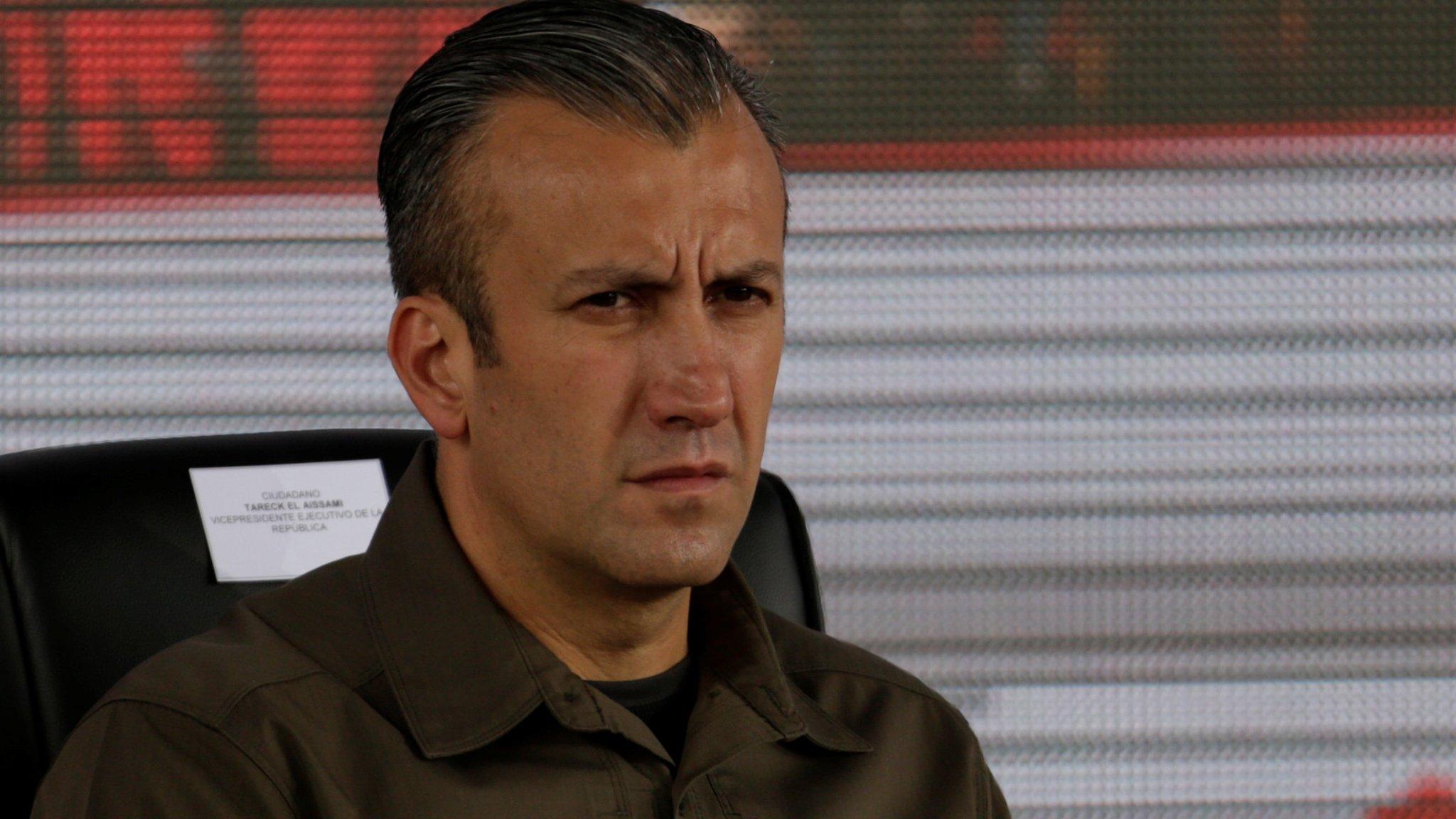CNN Spanish service moves to YouTube after Venezuela ban
- Published
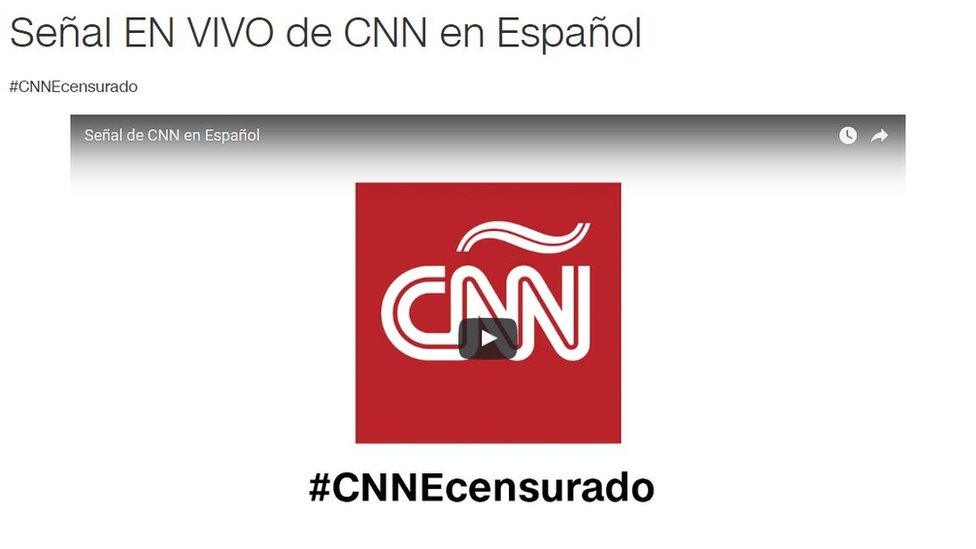
CNN's Spanish language service is now being broadcast on YouTube
CNN's Spanish language service has begun broadcasting on YouTube, external after the Venezuelan government pulled it from the country's cable channels.
CNN said Venezuelans would now be able to access its information without charge on the internet.
Venezuela's National Telecommunications Commission (Conatel) accused CNN of "defaming and distorting the truth".
The accusation came after CNN broadcast a report on alleged passport fraud at the Venezuelan embassy in Iraq.
Trafficking allegations
The report alleged that Venezuelan Vice-President Tareck El Aissami was directly linked to the granting of 173 passports, including to members of the Lebanese group Hezbollah, which is designated a terrorist group by the US and other Western powers.
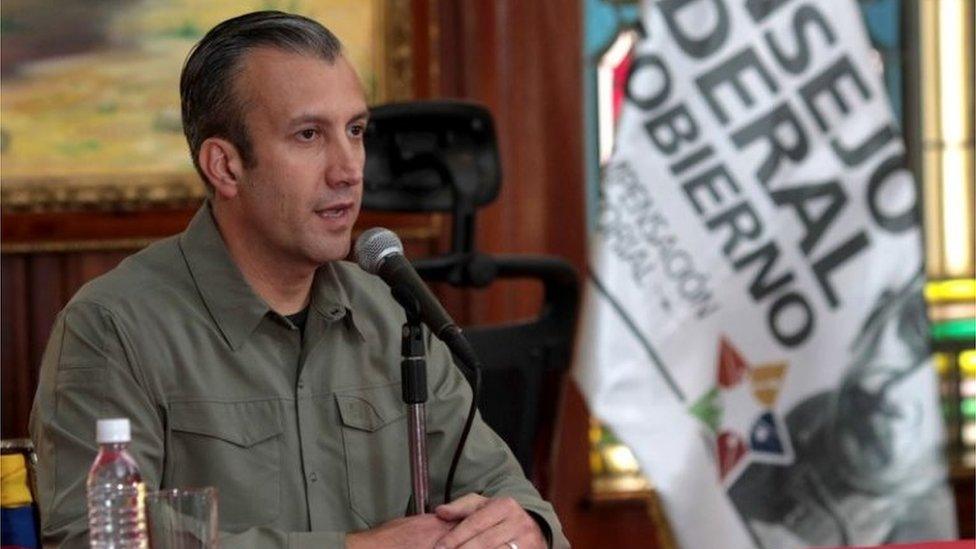
Vice-President Tareck El Aissami said the allegations against him were an "imperialist attack"
Venezuelan Foreign Minister Delcy Rodriguez gave a news conference on Wednesday in which she dismissed the allegations.
She accused the whistleblower behind them of being an "agent in the service of international intelligence agencies" and of having links to Venezuelan opposition groups.
The ban on the US news channel comes at a time of rising tension between the United States and Venezuela.
On Monday, the US treasury department sanctioned Vice-President El Aissami for allegedly trafficking drugs.
In its statement, external, the Office of Foreign Assets Control (OFAC) described him as a drug "kingpin" who worked with traffickers in Mexico and Colombia to ship drugs to the US.
Mr El Aissami accused the US of imperialist aggression.
Controversial meeting
Tension rose further late on Wednesday when US President Donald Trump posted a photo of himself in the White House meeting Lilian Tintori, the wife of jailed Venezuelan opposition leader Leopoldo Lopez.
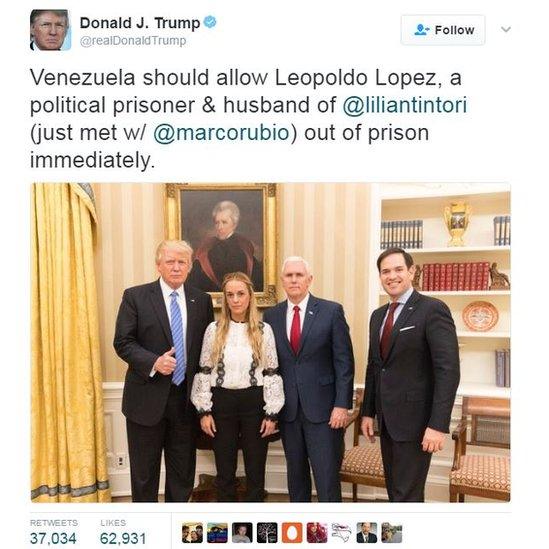
President Trump referred to Mr Lopez as a "political prisoner"
Mr Lopez is serving a 14-year jail sentence for inciting violence at mass protests in 2014. Mr Lopez, who leads the Voluntad Popular (Popular Will) party says the sentence was politically motivated.
Before the tweet, President Maduro had said: "I don't want problems with Trump".
But after the tweet was posted, Foreign Minister Rodriguez wrote on Twitter that she rejected "the meddling and aggression of US President @realDonaldTrump who tries to give orders in our fatherland".
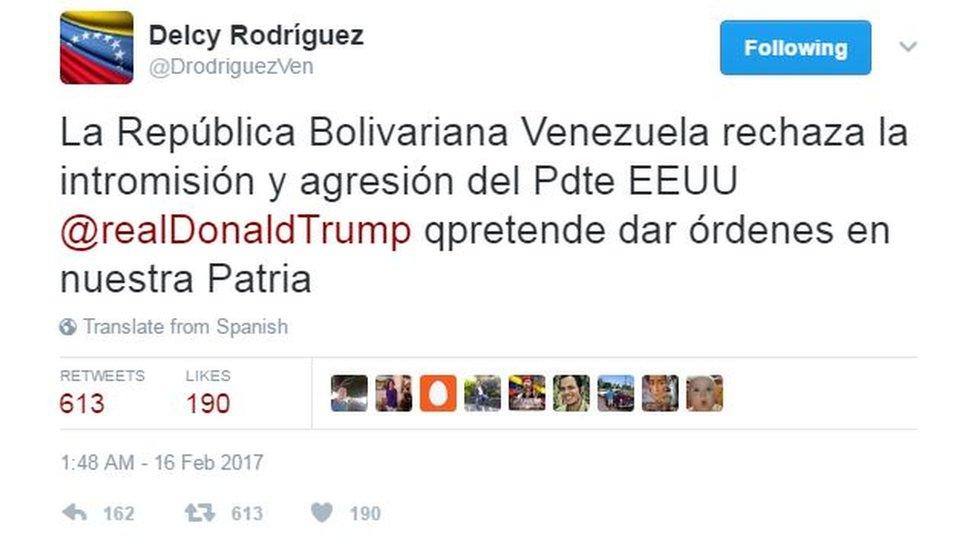
She also tweeted that President Trump had "sided with the boss behind violent acts" while President Maduro had proposed "initiating a new era of respectful relations" between the two.
- Published15 February 2017
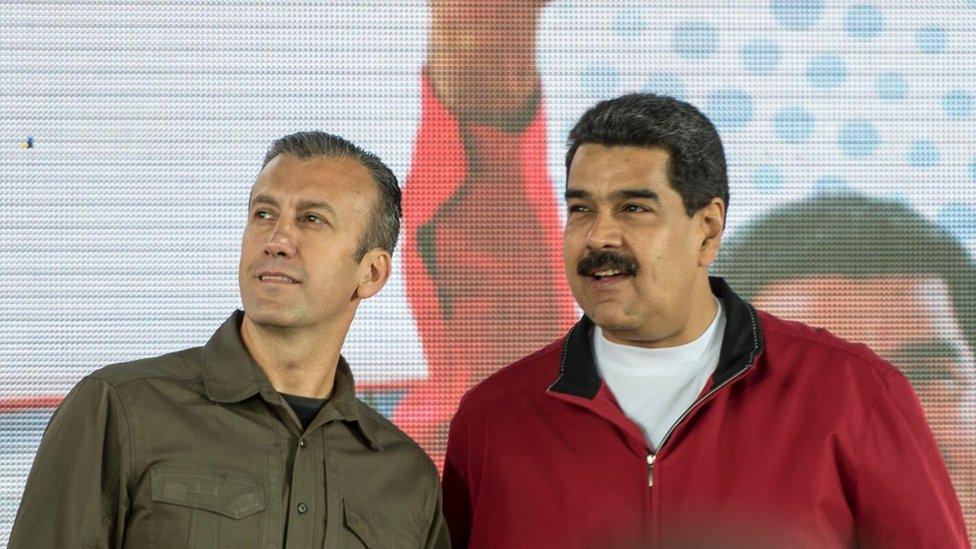
- Published14 February 2017
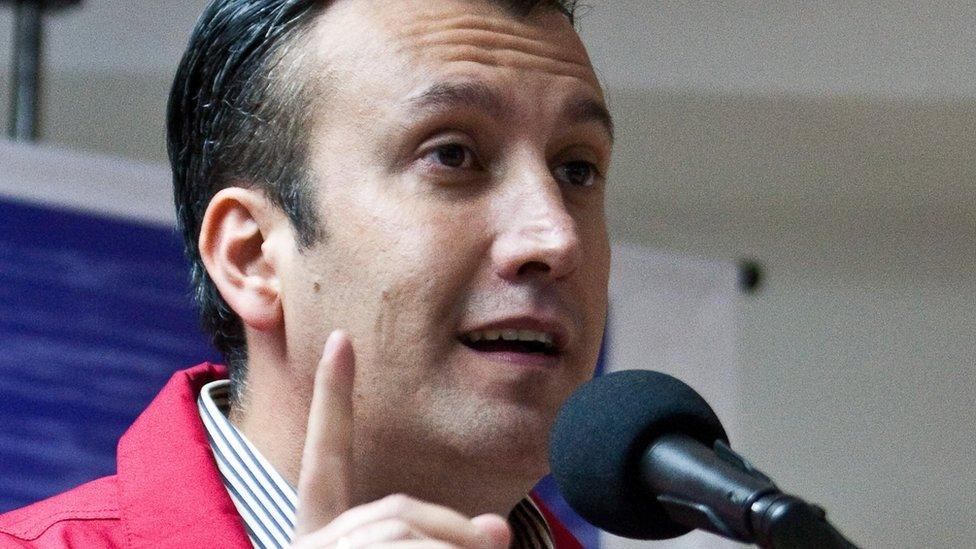
- Published14 February 2017
